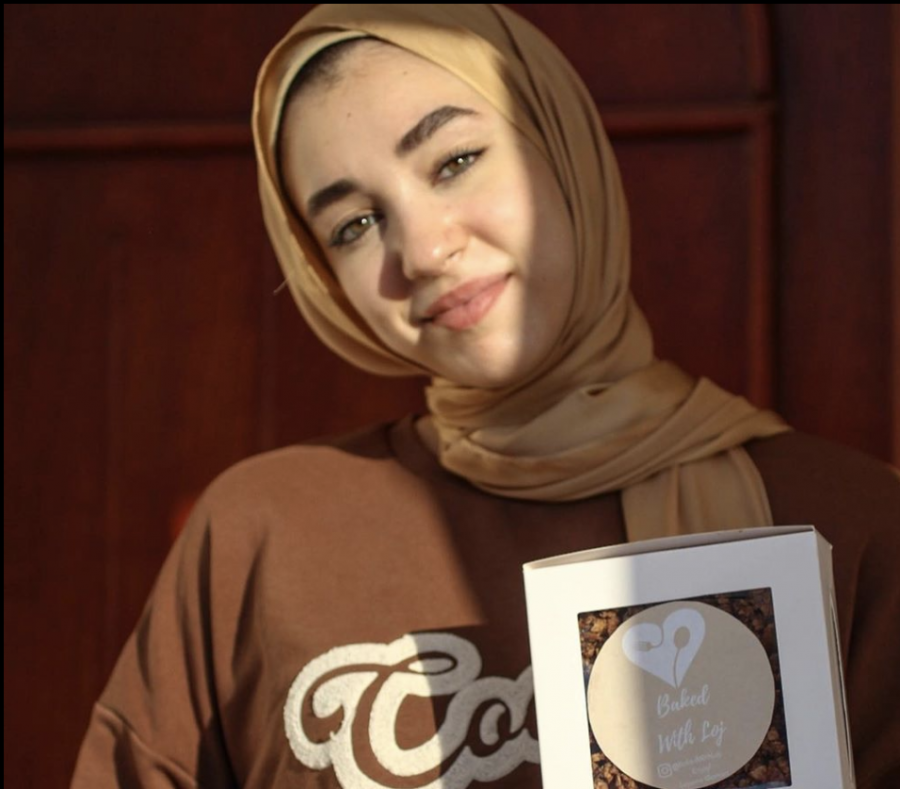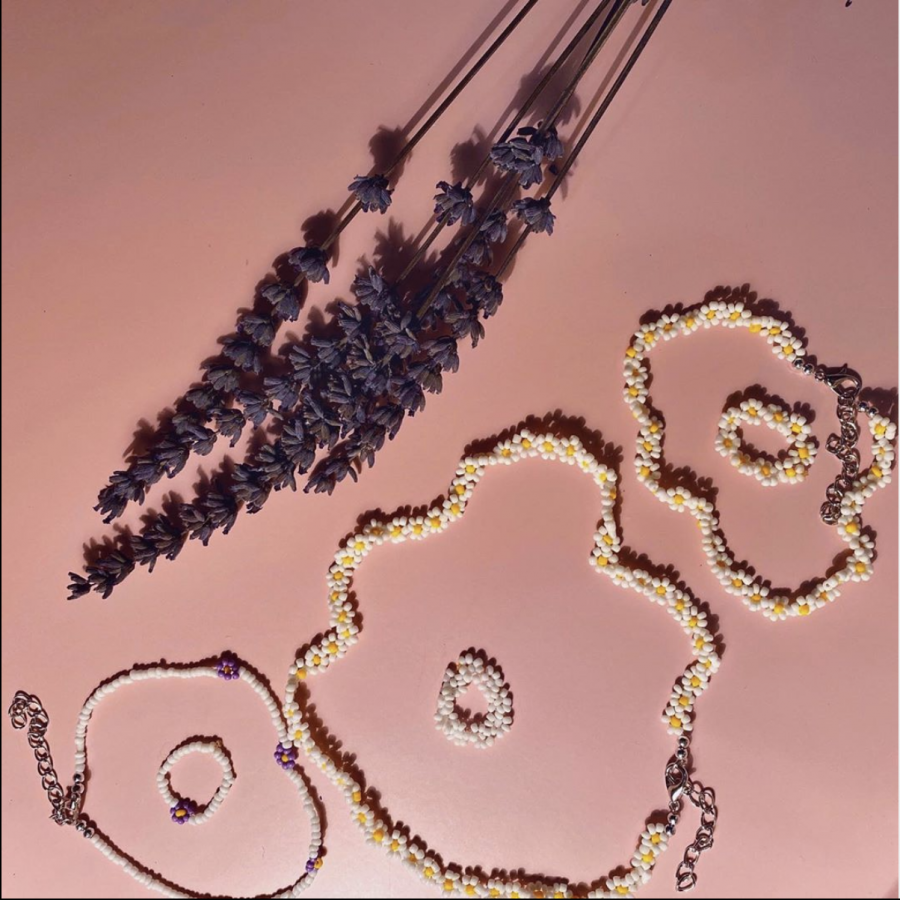Female Entrepreneurs Adapt in Pandemic-Stricken Qatar
Before the pandemic hit, art was just a hobby for Ghada Ahmed Alresi, a sophomore at Northwestern University in Qatar. “I started my Instagram page in 2017, posted four paintings and stopped. But as the pandemic started, I decided it is time to take my art more seriously,” she said.
Over the past few months, Alresi launched her own digital art business, creating and selling her artwork through social media. She is one of many female entrepreneurs in Qatar who in the last seven months of a nationwide lockdown have used the COVID-19 quarantine to start and expand their businesses. For these women, the time and space that they had suddenly been given worked to their advantage.
Entering the workforce can be a difficult task for women in Qatar. According to the statistical portrait released by the Planning and Statistics Authority of Qatar, in 2018, about 41.5 percent of Qatar’s total female population is economically inactive. This figure is in stark contrast to the male labor force of the country: only 4 percent of Qatar’s total male population is economically inactive. This gap is a result of the barriers that women in Qatar specifically face in order to participate in the workforce.
Women in the Gulf are confronted with a variety of social challenges, such as a lack of acceptance in the workplace and familial restrictions, that they must grapple with before they can enter the workforce. They must also tackle certain legalities and tedious registration processes when starting a business. For example, acquiring leases to register a company requires fees over QR100,000 and lack of government funding centered around female entrepreneurs makes it challenging for women to gather such large amounts during the initial stages of their venture.
“This is a crucial topic in Qatari society today, both economically and culturally. Qatari women equal or surpass Qatari men in secondary and higher education achievement, and yet the percentage of Qatari women who participate in the country’s labor force lags behind expectations and needs,” said Jocelyn Sage Mitchell, an assistant professor in residence specializing in political science at NU-Q.
However, according to Mitchell, the pandemic and the subsequent lockdown in Qatar presented a unique opportunity for women who were interested in entrepreneurship. “When it comes to the pandemic specifically, Qatari women are more likely than men to base their business ventures out of their homes and through online ventures, precisely because of social and cultural reasons, along with some legal and regulatory reasons,” Mitchell stated. “Unfortunately, women continue to face challenges in starting their entrepreneurial businesses, a fact noted in the 2018-2022 Qatar National Development Strategy as a continued concern.” Yet, the isolation brought by the pandemic offered a catalyst for businesses that had the potential to be developed and executed remotely, and as a result, for female entrepreneurs, the pandemic proved to be a “blessing in disguise,” she explained.
According to Alresi, the concept behind her venture, gee_paints, came to her when she decided to put aside traditional artistic techniques to explore digital art. “Honestly, it’s like taking eleven steps back,” she said about the transition to digital art. However, with the right equipment, Alresi began teaching herself and soon started taking commissions for her work. Initially, to expand her audience, Alresi painted mothers and their children as Disney characters. “It was like bringing fantasy into reality and it felt great,” she said. Alresi was able to reach out to clients by advertising her work through a cousin’s online business, and in a span of three months, her followers on Instagram grew by 250 percent, she added.
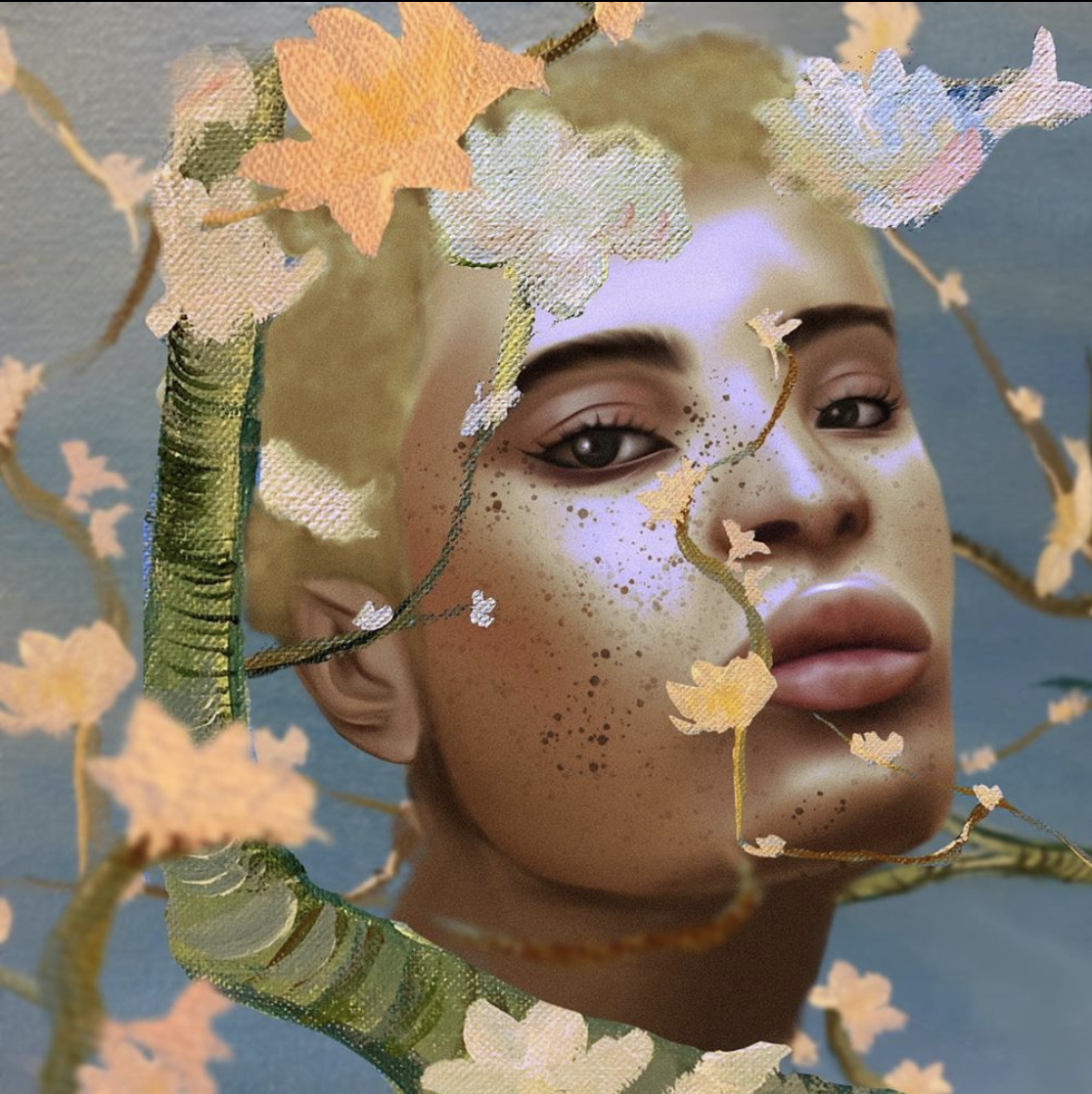
As an artist with a budding business, Alresi said she uses her platform to raise awareness about issues that she thinks need more public attention. One of her pieces is based on some of the restrictive laws that Qatari mothers face in Qatar. In a visual carousel, a Qatari mother is seen fixing her son’s Agal (a black rope-like cord worn on the head). As the visual changes, the mother silently closes her eyes and tears up. The piece, Alresi stated, depicts how the law forbids Qatari mothers who marry into a non-Qatari family from passing their nationality on to their children.
Alresi said her artwork began gaining so much traction that media organizations such as Doha News even reached out to interview her about the complexities of her work. She added that the pandemic has, in a way, helped her focus on concepts that she feels strongly about and has encouraged her to creatively express them.
Similarly, Lojaina Gomaa, a junior at NU-Q, said that she has always been passionate about baking, but it was the lockdown that led her to kickstart her own baking business. This venture began when she started bringing her baked goods for family gatherings. After receiving compliments for her food, she began posting baking tutorials on Instagram. “When the pandemic happened, I started baking and people became interested in what I had to offer,” she said.
Gomaa said she built her clientele through her friends and family who loved her desserts and would then tell their friends about her business. Her vision was to provide people with nutritious food while keeping prices budget friendly. “It was never about the money, I wanted to share what I learned with my customers,” she added.
Gomaa’s business is a family-fueled effort. Her father helps her manage finances while her mother helps her get the best ingredients for the food she bakes. “It was challenging to manage at first, but my mom helped me with the logistics and my sister did the deliveries; we had built a support system.”.
When her friends started posting about her products on their social media accounts, the orders she received started increasing exponentially, Gomaa said. Over the span of two months, she booked more than 100 orders across Doha; she explained that this led her to limit the number of orders that she accepted in order to maintain the quality of her baked goods. In the future, she hopes to share recipes and tutorials on her platform: bakedwithloj.
Princess Collado, a sophomore at NU-Q, also used social media to start her own art business during the lockdown. She said she saw the potential of her work during the Creative Media Festival held in February at NU-Q. Her art piece titled “Collateral Damage” was about the socio-political issues of the Philippines.
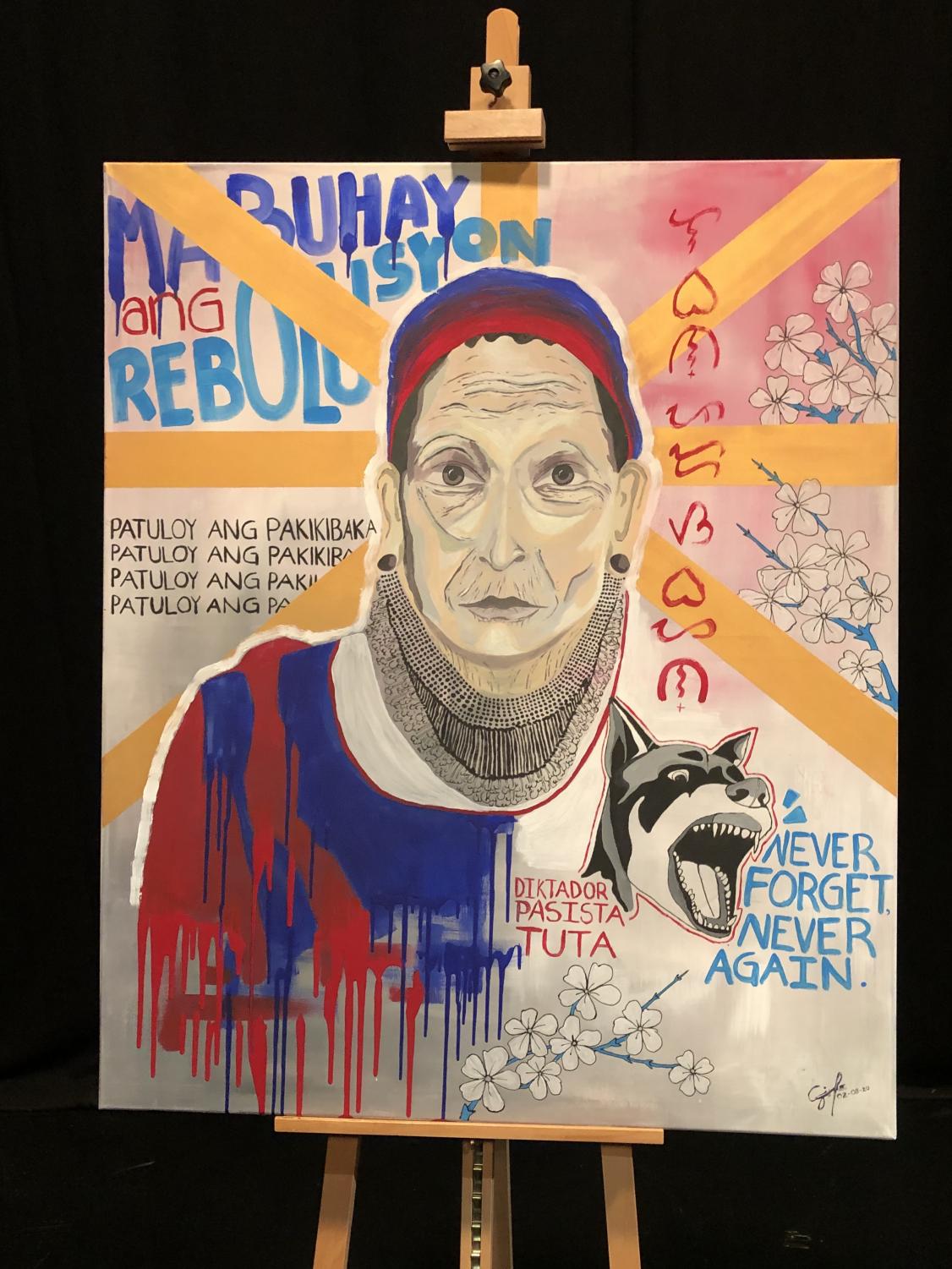
Due to her academic work, Collado said she had never been able to properly commit to her art. The pandemic gave her enough time to focus on producing art regularly and helped her to create pieces that she felt held significance.
“I have always thought about possible criticism when it comes to making art with political undertones, especially about the Philippines. But I feel, whenever I voice my thoughts through art, it is always more powerful than words,” Collado said, adding that she has channeled all the money collected from her venture to causes she feels strongly about, including to humanitarian organizations in Yemen and Lebanon.
Similarly, Piadora El-chanti, a 16-year old high school senior, used her online jewelry business, Kharaz.qa, to set up a donation drive for victims of the recent Beirut blast. By donating the proceeds of the orders she received, El-chanti said she was able to raise US $8,000. “As a Lebanese, I felt that it is my responsibility to help Beirut,” she said. During her donation drive, El-chanti said that she received 40 orders per day. “It used to be a lot of work, but I was committed to it.”
Her business gained popularity during the pandemic since people were spending more time shopping online, and her donation drive helped her business gain public attention as well, she explained. The audience El-chanti caters to is steadily growing, she said, and to accommodate their demands, she plans to expand her business by adding more jewelry products to it.
But the pandemic also came with a significant number of challenges, said Reema Abu Hassan, a VCU-Q alumna and the owner of a ceramics studio called Clay Encounters.
“When the pandemic hit, it was absolutely chaotic,” Abu Hassan said, explaining how she had to rethink her business plan entirely. Her business previously focused on giving pottery classes; customers used to visit her store to learn and de-stress. However, as public gatherings were strictly prohibited during the lockdown, Abu Hassan said she had had to develop her company’s online presence.
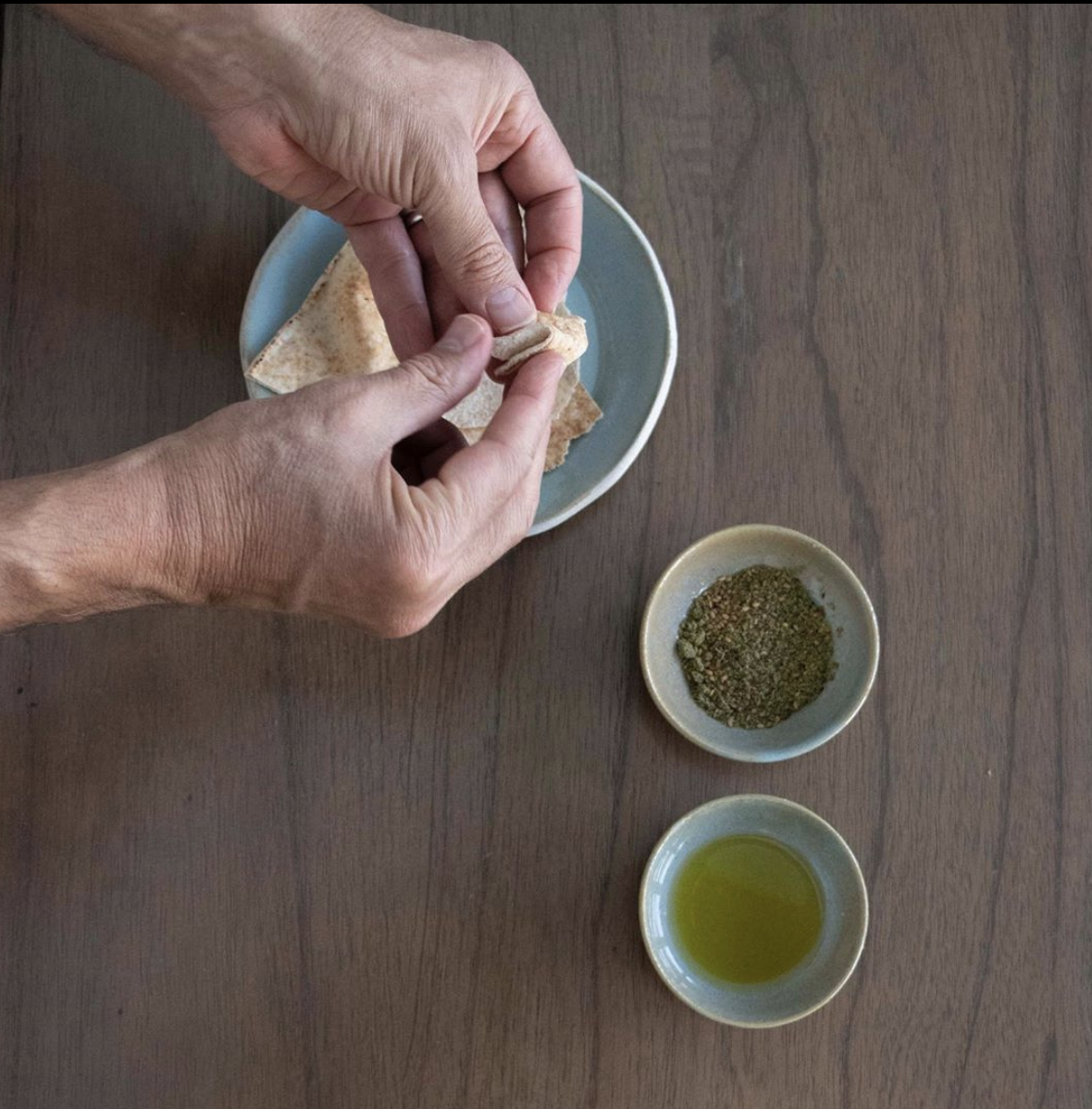
“We focused on our Instagram page during the lockdown and that boosted our sales,” she stated. Abu Hassan said that her audience has now grown to more than 8,000 people. On the Clay Encounters Instagram page and online shop, Abu Hassan’s clients got a chance to experience the sense of her pottery studio virtually, and they also had the opportunity to buy the products they liked online.

Shifting to an online platform increased Clay Encounters’ consumer base to the extent that Abu Hassan has begun working on expanding her studio space to accommodate more classes and to experiment with different materials, she said. She also plans to collaborate with cafes and galleries in Qatar to display her work, and she is preparing to participate in the London craft week that is held through September and October every year.
When the world slowed down, these rising female entrepreneurs paced themselves, pursued their passions and built ventures regardless of the ongoing uncertainty. In the face of adversity, their business ideas, rekindled from hobbies, passions and epiphanies, were able to flourish.

